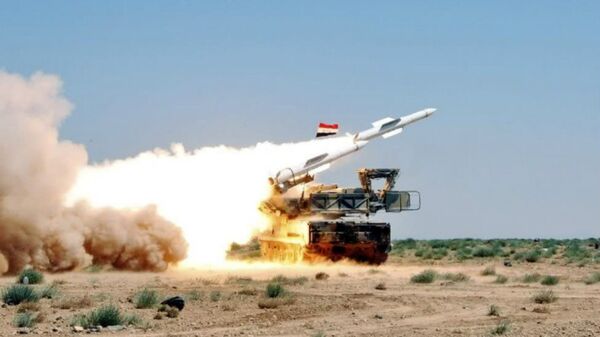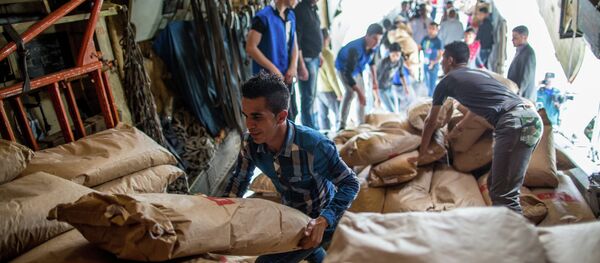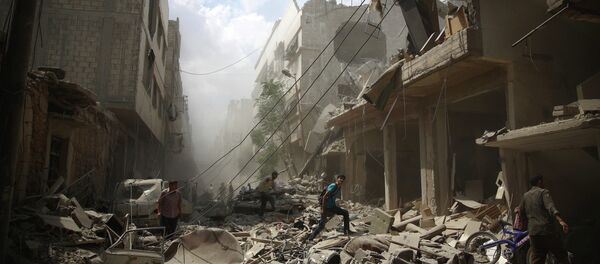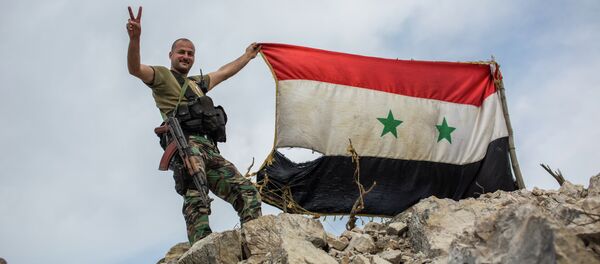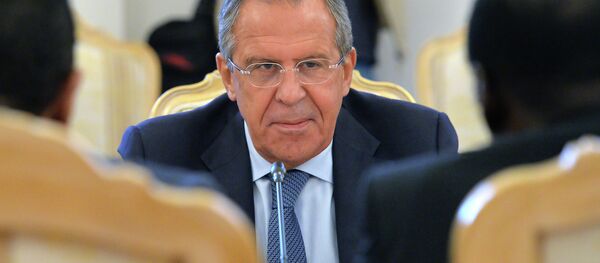NATO Supreme Allied Commander James Stavridis told Defense One that "it is very dangerous to have both Russian and US troops in a confined battle space, essentially on opposite sides of a civil war, without contact for deconfliction of any combat or support activities." The former commander emphasized that "open communication at the strategic and tactical level are both important."
Stavridis cited the practice of US and Soviet naval forces sharing detailed action plans during the Cold War to avoid accidental escalation, noting that "we need similar dialogue, and possibly such protocols, to avoid incidents in Syria."
Earlier this month, Western media were driven into a frenzy after 'discovering' the presence of Russian military advisors in Syria. On Thursday, Russian Foreign Minister Sergei Lavrov confirmed that the Russian military personnel are present in the country, but highlighted that this was not something that should have surprised or shocked anyone.
"There are Russian military personnel in Syria; they have been there for several years," the foreign minister noted. "Their presence is tied to the deliveries of arms for the Syrian Army that is taking the brunt in the fight against terrorism from the Islamic State and other extremist groups; Russian military personnel are there in order to help the Syrian military master their equipment and prepare it for use in the anti-terrorist fight."
In his comments Thursday, the foreign minister said that Moscow would whole-heartedly support direct military-to-military communications between Russia and NATO, cut off by the US amid the crisis in Ukraine. He added that Russia fully understands the importance of such contacts in avoiding "undesired, unintended incidents. We are always in favor of military people talking to each other in a professional way. They understand each other very well," he noted. Lavrov noted that at the moment, it is the US side that "wants those channels frozen."
Differing Ideas on How to Crush ISIL for Good
Defense One warned that the presence of both Russian and American forces and their allies in Syria could have unintended consequences, including military incidents between the two powers. While Russia has long-maintained that the Syrian army is now the only force capable of confronting the Islamic State on the ground in Syria, the US has been "deepening agreements with Turkey to use its bases and clear its border of ISIS fighters" and "training and equipping Syrian fighters and reinserting them into the fight in Syria, where it has vowed to defend them against ISIL or Assad."
Russian and American strategists are openly divided when it comes to ideas on how to crush ISIL once and for all. In its regular press briefing Friday, the Pentagon noted that while the US would "welcome constructive anti-ISIL efforts by Russia…it can't start with, and it can't be a function of, continued support to the Assad regime."
Syria has been mired in a bloody civil war since 2011, with forces loyal to President Assad fighting several opposition groups, among them several strains of radical Islamists, including al-Qaeda affiliate al-Nusra and elements which have since morphed into the Islamic State. The US, Turkey and Saudi Arabia have supported various anti-Assad groups over that time, with the US and Turkey presently settling on what they say are 'moderate' Syrian opposition forces, while Russia maintains that Assad is the only legitimate, democratically elected authority in the country.
